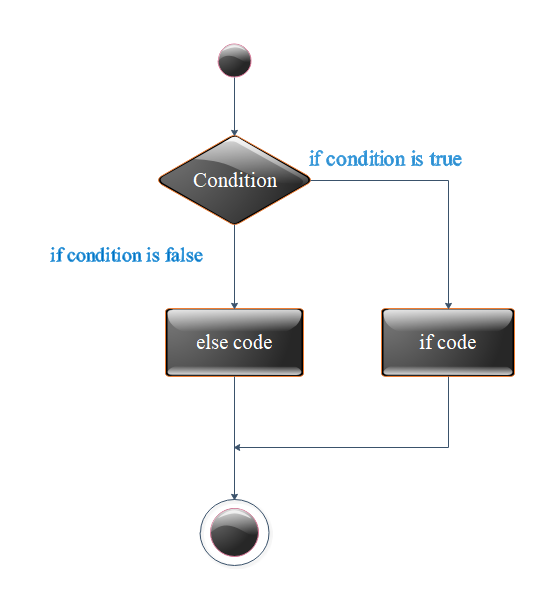if else statement in c
- The if statement lets you do something if a condition is true. If it isn’t true, nothing happens. But suppose we want to do one thing if a condition is true, and do something else if it’s false.
- While if performs an action only when its condition evaluate to true, if / else allows you to specify the different actions when the condition true and when the condition is false.
- The else statement cannot be used without if. No multiple else statements are allowed with one if.
- The if statement lets you do something if a condition is true. If it isn’t true, nothing happens. But suppose we want to do one thing if a condition is true, and do something else if it’s false.
- That’s where the if...else statement comes in. It consists of an if statement, followed by a statement or block of statements, followed by the keyword else, followed by another statement or block of statements.
- As a general rule, we express a condition using C's relational operators.
Syntax:
if(condition)
{
// Statements inside body of if
}
else
{
//Statements inside body of else
}
Fig- Flow Diagram of if else statement
Example:
/ Program to check whether an integer entered by the user is odd or even
#include <stdio.h>
int main()
{
int number;
printf("Enter an integer: ");
scanf("%d",&number);
// True if remainder is 0
if( number%2 == 0 )
printf("%d is an even integer.",number);
else
printf("%d is an odd integer.",number);
return 0;
}
Output:
Enter an integer: 7 7 is an odd integer.